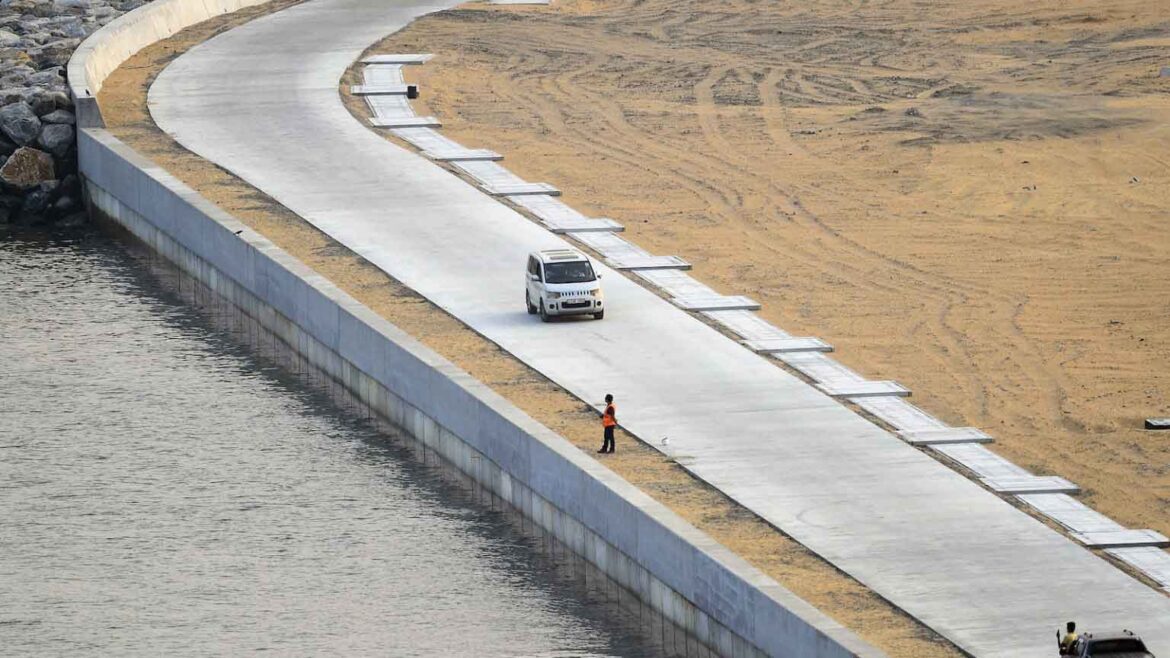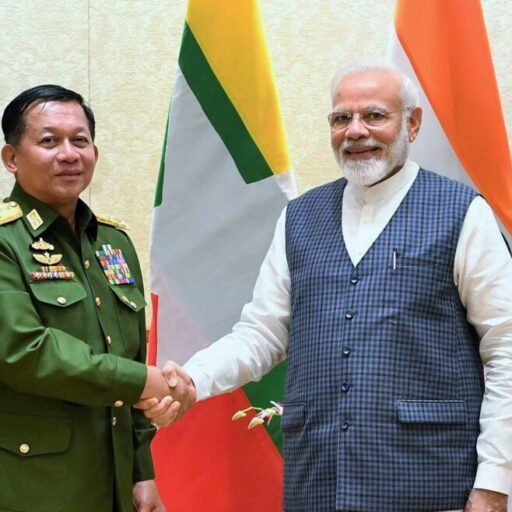Singapore has a unique appeal in the popular imagination in large parts of Asia. Many developing countries in the region want to have a city that resembles Singapore.
It is a city-state that has made remarkable economic growth in a span of a few decades. Importantly, it is an Asian country that did not grow by adopting colonial or neocolonial policies and, therefore, its economic achievements receive genuine appreciation.
It is precisely for this reason that politicians and policymakers in many Asian countries promise their citizens that they will convert their existing cities or towns or even villages into Singapore.
It is interesting that many countries in Asia receiving funding from China, under the rubric of the Belt and Road Initiative (BRI), want to have a city like Singapore. For instance, initially the Kyaukphyu port, located in the Rakhine province of Myanmar, was referred to as a mini-Singapore in the making.
Currently, two pipelines – oil and gas – carry energy resources to Kunming province in China from Kyaukphyu. While Myanmar is getting royalties, it has not been able to use its domestic gas resources to address the energy crisis in the country. Chinese firms reportedly have a 70% stake in the proposed special economic zone (SEZ) and a deep seaport.
The project went through several rounds of negotiations, and the total outlay was reduced as the previous civilian government was worried about a possible debt crisis. Unlike Singapore, the Kyaukphyu port is a little removed from the busy international sea-lanes of communication.
Further, Kyaukphyu is located away from the hubs of economic activity in Myanmar, which tend to be around Yangon and Mandalay. Because of the current political turmoil in the country, the prospect of foreign direct investment (FDI), other than Chinese investments, flowing into Kyaukphyu looks bleak.
Policymakers in Pakistan feel that Gwadar City (located in Balochistan province) “should have already been developed like Singapore 10 years ago.” In their opinion, the mistake is now being rectified through the proposed construction of the Gwadar deep seaport, an SEZ and an international airport.
Chinese companies are implementing most of these infrastructure activities. Large tracts of land were reportedly given on lease to Chinese companies to build the deep seaport. While Gwadar is close to the Strait of Hormuz, a very busy sea-lane, it will have to compete with other established port cities such as Dubai, Bandar Abbas, Muscat and the more recent Chabahar.
In Myanmar and Pakistan, the ruling elites do not live in the city they wish to turn into Singapore. In fact, there is a contest between local ethnic groups and the ruling elite. Local populations in Balochistan and Rakhine provinces are suspicious of the activities being carried out and often wonder if they would benefit from the economic outcomes of these projects. Balochistan and Rakhine provinces are also sites of sectarian violence and insurgency.
Singapore also looms large in the developmental imagination of Sri Lanka. There is an expectation that Colombo Port City will enable Sri Lanka to reach “the level of Singapore.” The Colombo Port City SEZ aims to promote trade, banking, financial and BPO (business process outsourcing) services, and residential and entertainment facilities. The project is also is being implemented by a Chinese company.
Sri Lanka’s recent legislation regarding the Colombo Port City project has raised many eyebrows. There is a perception that the legislation has created an alternative governance framework by empowering a commission to make all-important decisions regarding the port city. The members of the commission were appointed by the president.
The Sri Lankan government contends that the commission will facilitate quick decision-making and faster implementations of the project. However, there is considerable anxiety in Sri Lanka, given the Hambantota experience, wherein the large tracts of land and port were given on a 99-year lease to China in lieu of debt payments. The recent economic crisis has only exacerbated concerns regarding Sri Lanka’s external economic engagement.
The experiences of Pakistan, Sri Lanka and Myanmar demonstrate that the references to the success of Singapore are not a call for deeper reflection on pathways to economic prosperity. Sadly, such references are superficial, as they indicate a desire or aspiration to have a city skyline with glitzy high-rise buildings.
Singapore’s development experience has a few important lessons for other developing countries.
First, Singapore did not hitch a ride to prosperity based solely on loans from rich countries. On the contrary, Singapore’s economic growth was a consequence of carefully planned interventions such as improving the ease of doing business to attract FDI, developing human capital, and leveraging its geographic location to emerge as a transportation hub and centre of financial services.
Second, Singapore’s approach is not based on replicating global templates of development. Instead, it is based on a clear understanding as to what will work at the local level. Other countries need to worry less about whether they are part of trans-continental infrastructure initiatives and focus more on the local context.
Third, public policy and social vision need to go hand-in-hand. An important component of Singapore’s governance has been equal respect for multiple faiths. If a city or country is not welcoming to all faiths, it will find it challenging to get people from across the world invested in its growth.
With rising religious fundamentalism and the Taliban in its back yard, Pakistan, specifically Gwadar, may not emerge as the most sought-after FDI destination. In this regard, there are lessons for Sri Lanka and Myanmar as well.
Finally, it must be recognized that raising the standard of living in a country cannot be achieved by quick fixes like leasing out large parcels of land to firms from other countries. It requires policy consistency and relentless focus on economic growth.
Singapore expanded its national power in its search for prosperity, and it did not bargain away its sovereignty. That is the essential lesson that others must learn.




